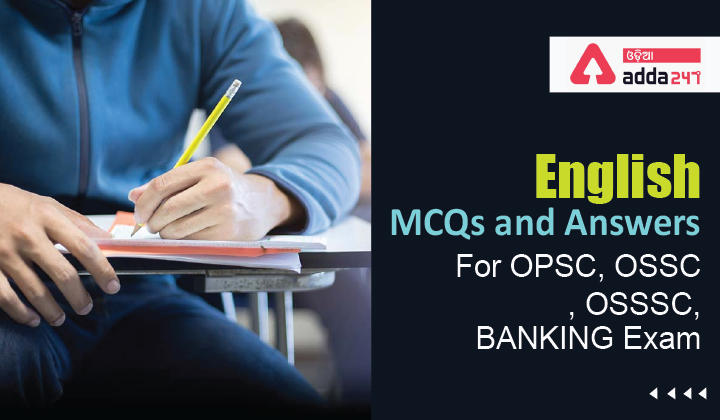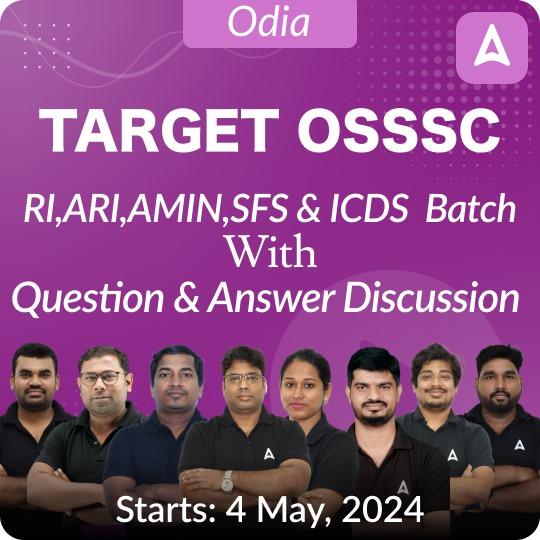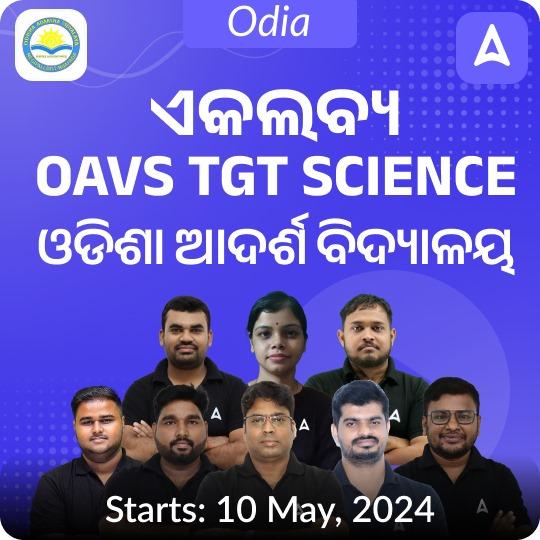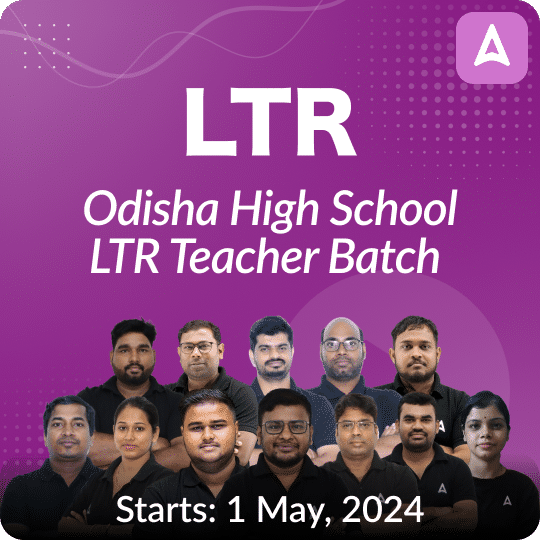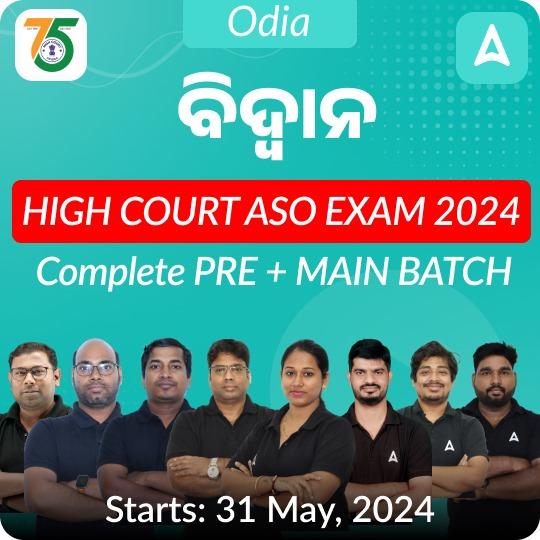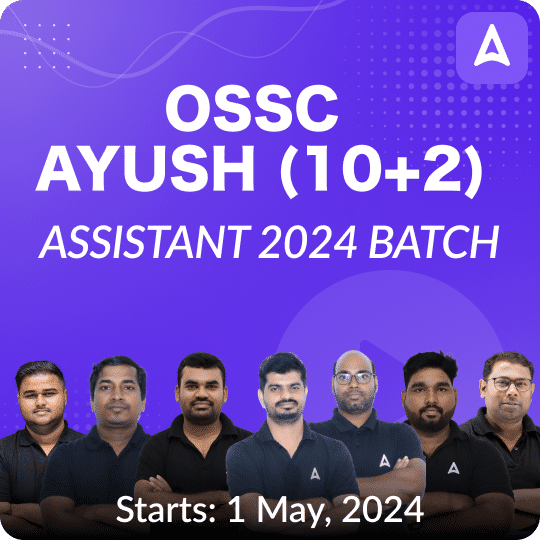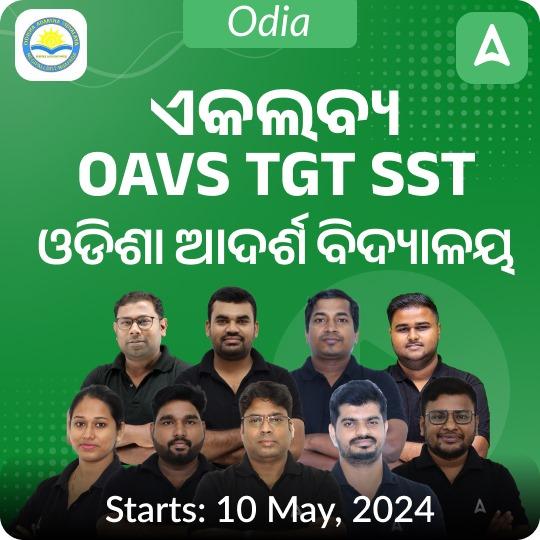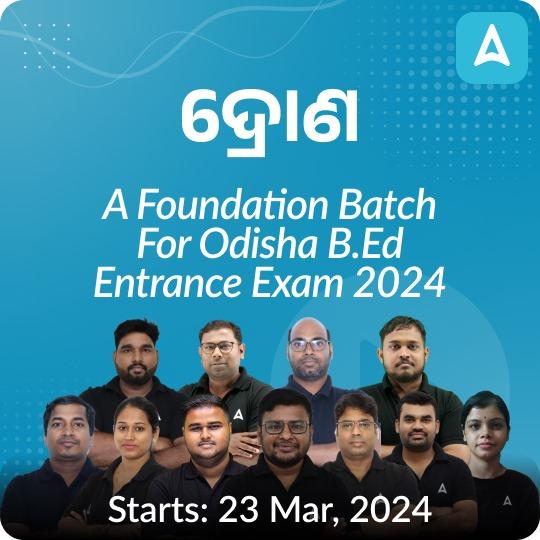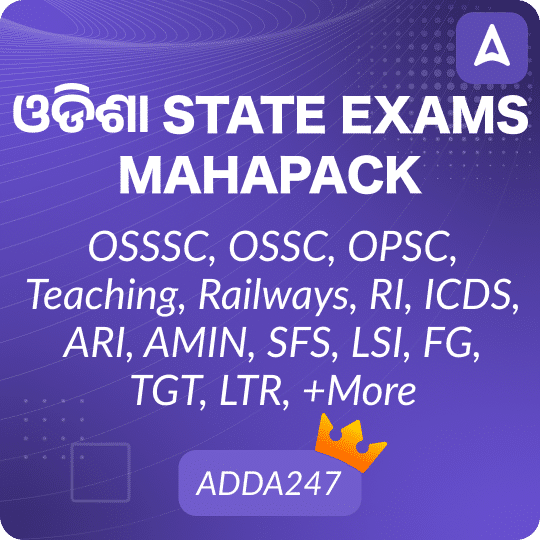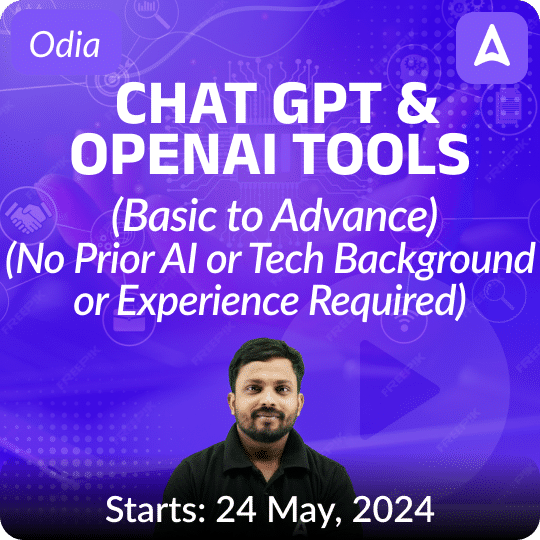English MCQs and Answers: English MCQs are essential for OPSC, OSSC, OSSSC & Other State Exams. Aspirants willing to apply for the various Government exams in 2022 must go through the topics of general English for competitive exams, as the English language is a key part of the syllabus.
Download ADDA247 Odia APP – Appear Latest Exam Test Series & Live Classes
Directions (1-15): Identify the best way to improve the bold part of the given sentence. If there is no improvement required, select ‘no improvement’.
Q1. Complex carbs like chapati, potato and rice could not be eliminated from the diet as they are high in fiber and provide energy for body functions.
(a) Will
(b) Might
(c) No improvement
(d) Should
S1. Ans (d)
Sol. The correct answer is option d.
Replace ‘Could’ with ‘Should’ to make the sentence grammatically and contextually correct.
Could – to be able to, to be allowed to, or possible. Could is used when talking about an ability in the past or for a more polite way to ask permission.
For example – George could show up to work today
Should –The modal verb ‘Should’ is used to politely express obligations or duties; to ask for or issue advice, suggestions, and recommendations.
For example – He should come to the meetings on time.
Might – To express possibility in the past.
For example – He might have seen the movie before he read the book.
Will – To express intention.
For example – I will invite John if you clean the house.
Q2. Barely had Ajay started the presentation then Vinit started questioning.
(a) Than
(b) No improvement
(c) When
(d) That
S2. Ans (c)
Sol. The correct answer is option c.
Replace ‘Then’ with ‘When’ to make the sentence grammatically and contextually correct.
If the second event occurs immediately after the first, we can express that idea using the structure ‘Barely/ hardly/ scarcely…When’.
‘Barely/ hardly/ scarcely’ – It is followed by ‘When’.
Q3. The mango had been known to Indians since very early times.
(a) Can be known
(b) has been known
(c) was known
(d) No improvement
S3. Ans (b)
Sol. The correct answer is option b.
Replace ‘had been known’ with ‘has been known’ to make the sentence grammatically and contextually correct.
The past perfect, is a verb tense used to talk about actions that were completed before some point in the past.
The present perfect tense refers to an action or state that either occurred at an indefinite time in the past (e.g., we have talked before) or began in the past and continued to the present time (e.g., he has grown impatient over the last hour). This tense is formed by ‘have/has + the past participle.’
Q4. Alexander the Great, whose death on the banks of the Euphrates River in June 323 BCE was attributed to malaria, shared that fate with numerous illustrious victims.
(a) Whom
(b) Who
(c) Which
(d) No improvement
S4. Ans (d)
Sol. The correct answer is option d.
The given sentence is grammatically and contextually correct.
Whose – It is a possessive pronoun. Use it when you’re asking (or telling) to whom something belongs.
For example – whose sandwich is this?
Who – It is a subject pronoun like “he,” “She” and “We.” We use “who” to ask which person does an action or which person is a certain way.
For Example – Who made the birthday cake?
Whom – it is an Object Pronoun. “Whom” is an object pronoun like “him,” “her” and “us.” We use “whom” to ask which person receives an action.
For Example – Whom are you going to invite?
Which – it is used in relative clauses to refer to animals and to things.
For Example – We have seen a lot of changes which are good for business.
Q5. He said “Make yourself in home” after inviting me to his place.
(a) With
(b) On
(c) No improvement
(d) At
S5. Ans (d)
Sol. The correct answer is option d.
Replace ‘In’ with ‘At’ to make the sentence grammatically and contextually correct.
Make yourself at home – It is an idiom, “To relax and make yourself comfortable in someone else’s home.”
Q6. Select the word which means the same as the group of words given.
Denoting a thing or person previously mentioned.
(a) Unsubstantiated
(b) Aforementioned
(c) Torrent
(d) Demagogue
S6. Ans. (b)
Sol. The correct answer is option b.
Aforementioned – The person, thing, people, or things that have been mentioned before in an earlier part of a piece of writing
Option (b) portrays the same meaning as that of the given group of words & hence it is
the correct choice.
Q7. Select the most appropriate synonym of the given word.
Advent
(a) Arrival
(b) Stop
(c) Loss
(d) Demand
S7. Ans. (a)
Sol. The correct answer is option a.
Advent – The fact of an event happening, an invention being made, or a person arriving
Synonyms – Appearance, Arrival, Coming, Incoming
Antonyms – Departure, Disappearance
Option (a) portrays the same meaning as that of the given word & hence it is the correct
choice.
Q8. Identify the segment in the given sentence which contains the grammatical error.
No sooner did he see other children than he becomes playful.
(a) becomes playful
(b) No sooner did
(c) see other
(d) children than
S8. Ans. (b)
Sol. The correct answer is option b.
The error lies in part b of the sentence.
Replace ‘Did’ with ‘Does’ to make the sentence grammatically correct.
Conjunction ‘No sooner —- than’ is also used to denote simultaneous actions.No sooner always introduces the event that occurred first.
The given sentence states an activity which is of present tense. Hence, usage of ‘Did’ is wrong here.
Q9. Given below are four jumbled sentences. Select the option that gives their correct order.
- Students of all ages need to read.
- They train their brains, in essence.
- Literacy development is a strong indicator of success in school and life.
- Reading may also lead to a better, more balanced life.
(a) DBCA
(b) ACDB
(c) CDAB
(d) BDCA
S9. Ans. (b)
Sol. The correct answer is option b.
The proper arrangement is – ACDB
A – It is the opening sentence as it introduces the topic by informing about the importance of reading.
C – Sentence A is followed by Sentence C as it mentions that literacy is an indicator of success in school and life which is linked with the earlier sentence.
D – It informs further that reading helps to have a better, more balanced life.
B – It concludes by stating that reading trains the brains of students.

Directions (10-15): Select the correct synonym of the given word.
Q10. SPRUCE
(a) Lethargy
(b) Elegant
(c) Scruffy
(d) Ragged
S10. Ans.(b)
Sol. Spruce: neat in dress and appearance.
Elegant: graceful and stylish in appearance or manner.
Scruffy: shabby and untidy or dirty.
Ragged: (of cloth or clothes) old and torn.
Hence option B is the correct synonym.
Q11. PERDITION
(a) Garrison
(b) Acclamation
(c) Downfall
(d) Ransom
S11. Ans.(c)
Sol. Perdition: complete and utter ruin.
Downfall: something that causes the destruction.
Hence option C is the correct synonym.
Q12. DANK
(a) Parched
(b) Clammy
(c) Dry
(d) Jaunty
S12. Ans.(b)
Sol. Dank: unpleasantly damp and cold.
Clammy: unpleasantly damp and sticky or slimy to touch.
Hence option B is the correct synonym.
Q13. DURESS
(a) Cake
(b) Catalogue
(c) Coerce
(d) Cash
S13. Ans.(c)
Sol. Duress: threats, violence, constraints, or other action used to coerce someone into doing something against their will or better judgement.
Coerce: persuade (an unwilling person) to do something by using force or threats.
Catalogue: a complete list of items, typically one in alphabetical or other systematic order.
Q14. DISCURSIVE
(a) Digestive
(b) Dividend
(c) Dot
(d) Digressive
S14. Ans.(d)
Sol. Discursive: digressing from subject to subject.
Dividend: a sum of money paid regularly (typically annually) by a company to its shareholders out of its profits (or reserves).
Digestive: related to human digestive system.
Digressive: tending to depart from the subject.
Q15. EFFETE
(a) Drained
(b) Desirable
(c) Sentimental
(d) Tenant
S15. Ans.(a)
Sol. Effete: no longer capable of effective action.
Tenant: a person who occupies land or property rented from a landlord.
History MCQs and Answers For Odisha Exam
Reasoning MCQs and Answers For Odisha Exam

